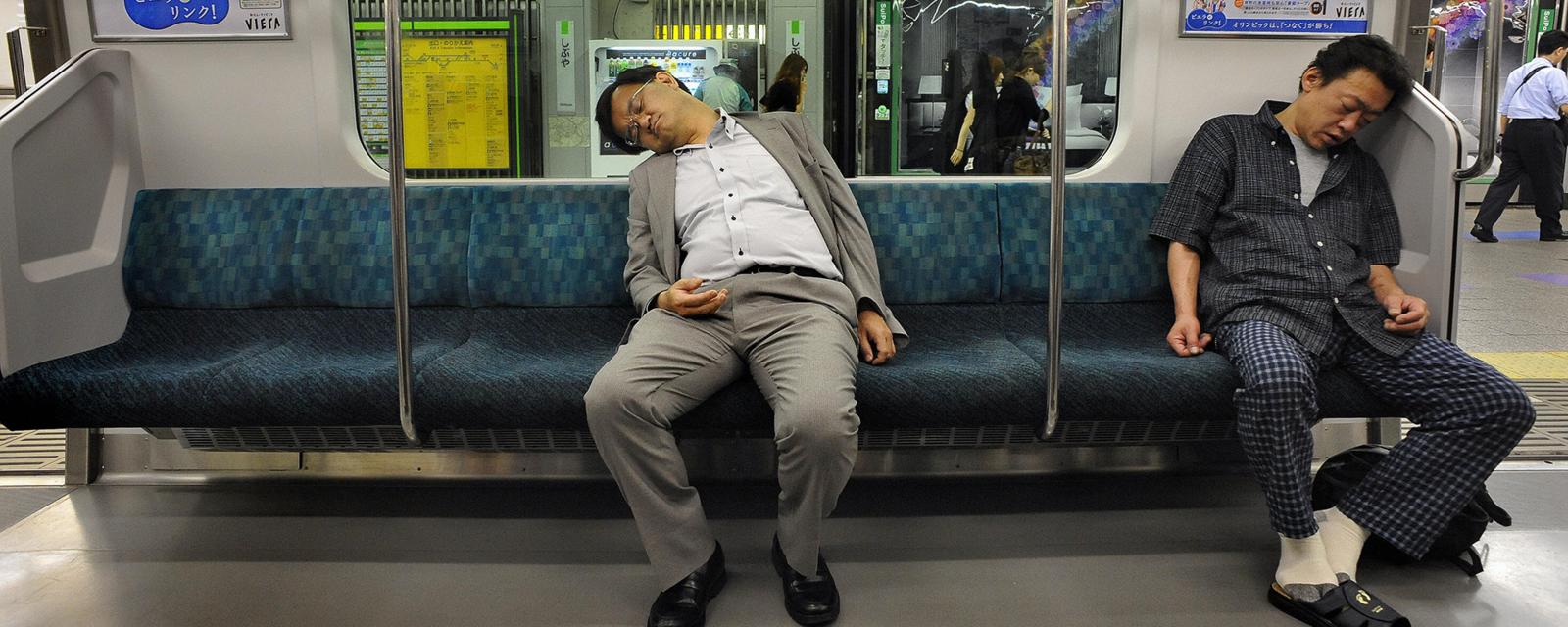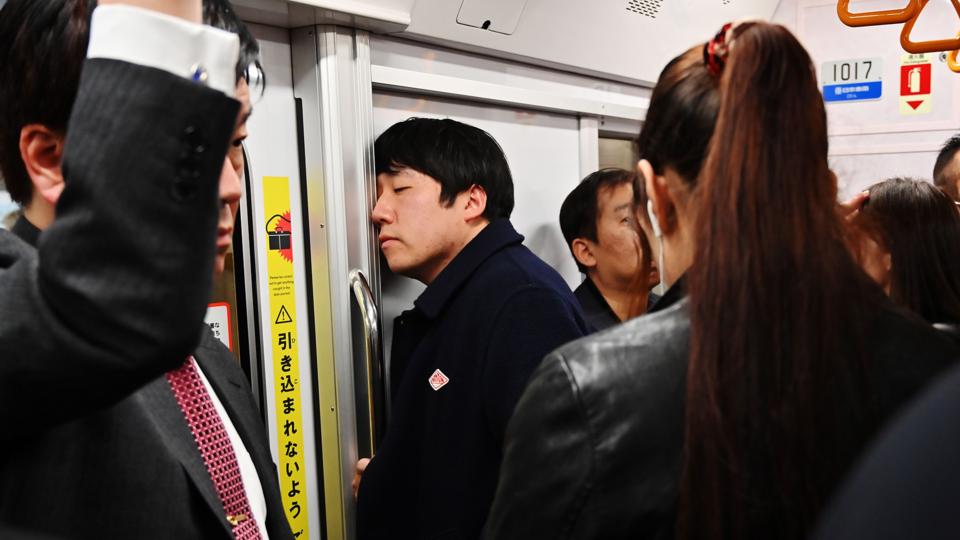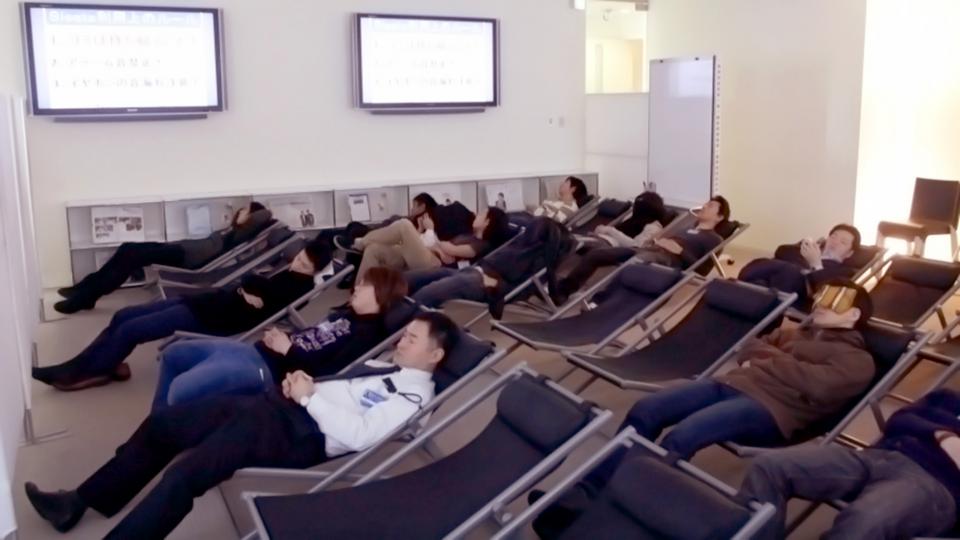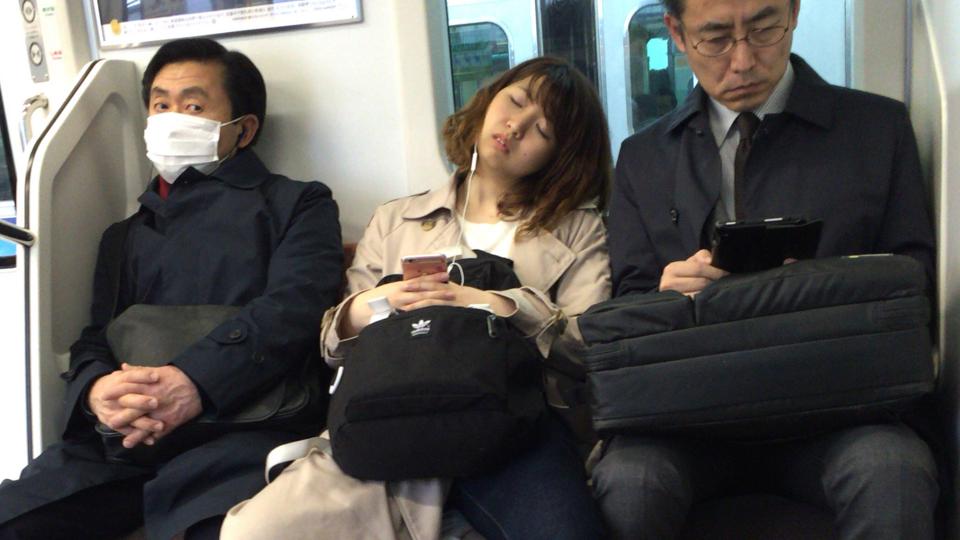- UID
- 20
- Online time
- Hours
- Posts
- Reg time
- 24-8-2017
- Last login
- 1-1-1970
|
|
━━━━━━━━━━━━━━━━━
Japan’s a chronically sleep-deprived nation – but some companies believe introducing a lunchtime nap at the office could help solve the problem. Could ‘hirune’ take off?

I.
▼
It’s three o’clock in the afternoon in Tokyo, and businesspeople across the city are bouncing between meetings outside the office, sneaking in breaks before heading back. Crouched over small tables in coffee shops with their faces down over their laptops, eyes glazed over, they eventually nod off. People are so tired, sleeping in cafés like this is commonplace. A couple of hours later, those lucky enough to get seats on their cramped train journeys back home shut their eyes again as soon as the train starts moving.
But no one around them bats an eyelid. Known as ‘inemuri’, drifting off in public has become synonymous with exhausted workers. However, tolerance of these frequent sightings of inemuri is contributing to the country’s chronic sleeping problem.
“It’s so easy to fall into it after an exhausting day at work,” says Takanori Kobayashi, whose sleep schedule was so wrecked by his former job as a businessman that he quit. Then he founded NeuroSpace, a start-up with a mission to implement sleeping programmes for companies. “What I didn’t realise until recently was how much it was damaging my quality of sleep overnight.”

OECD statistics, in its 2019 Gender Data Portal, reveal that Japan has the shortest average sleep in the world at 442 minutes per day a year – approximately 7.3 hours a night. South Korea also scored low at 471 minutes, whilst many countries averaged more than 500 minutes (8.3 hours) including Britain, France, Spain, the US and China. A new law capping overtime came into effect in Japan in April 2019 to combat the culture of long working hours that has contributed to workers’ short sleep cycles; the new law limits legal overtime work to 45 hours a month and 360 hours a year.
But companies have also begun taking matters into their own hands, encouraging employees to go for a ‘hirune’ – which literally translates as “lunchtime sleep”. At the headquarters of GMO Internet Group, a Tokyo-based company that provides services like web hosting, strong scents from aromatic lavender oil fill an unused conference room during lunch breaks, aiding the employees who occupy most of its 27 beds to sleep.
“What we encourage here is not inemuri,” says Sae Takahashi, the group’s chief spokesperson. “With hirune, one is consciously making an effort to rest within a short space of time. This way, we think they can effectively switch between business and break times, creating a better working environment.”
Called GMO Siesta, the facilities are available every day from 12:30 for an hour. “The habitual aspect of hirune is similar to the concept of siesta,” Takahashi continues. “Some use the room as part of their daily routine to help them rejuvenate for the afternoon. For those with children, it helps them catch up on sleep that they may otherwise miss out on at home.”

Overwork ‘crisis’
‘ Karoshi’ – the Japanese term for death from overwork as a result of sleep deprivation – has frequently made headlines in recent years.
In 2013, a 31-year-old political reporter at Japan’s national broadcaster NHK suffered heart failureand was found dead in her bed, holding her mobile phone. She had died from working 159 hours of overtime and only getting two days off a month. In 2017, advertising agency Dentsu was fined after a 24-year-old employee jumped out of a window after tweeting: “I’m going to die. I’m so tired.” Its CEO resigned.
The crisis around karoshi has created a sense of urgency among companies to do something about it – Takanori Kobayashi
For Kobayashi, lack of sleep became a catalyst to quit his job and run NeuroSpace. “When I graduated and started my career as a salaryman, I entered a terrible cycle,” the CEO says. “I couldn’t stop thinking about the pressures from my older colleagues when going to bed, which meant I couldn’t sleep much. The next day I would worry about my lack of sleep on top of the stress of work.”
“The factors affecting the stress kept multiplying, to the point where it was affecting my ability to perform well on the job. The lack of colleagues myself and others could turn to for support was evident.”
Since 2014, NeuroSpace has worked with more than 70 companies in Japan to advise companies on implementing sleeping programmes to boost employee productivity. After a slow start, almost half of those clients have come through since the start of 2019.

“The crisis around karoshi has created a sense of urgency among companies to do something about it,” says Kobayashi. “From a business point of view, (▪ ▪ ▪)
► Please, continue reading this article here: Source |
|